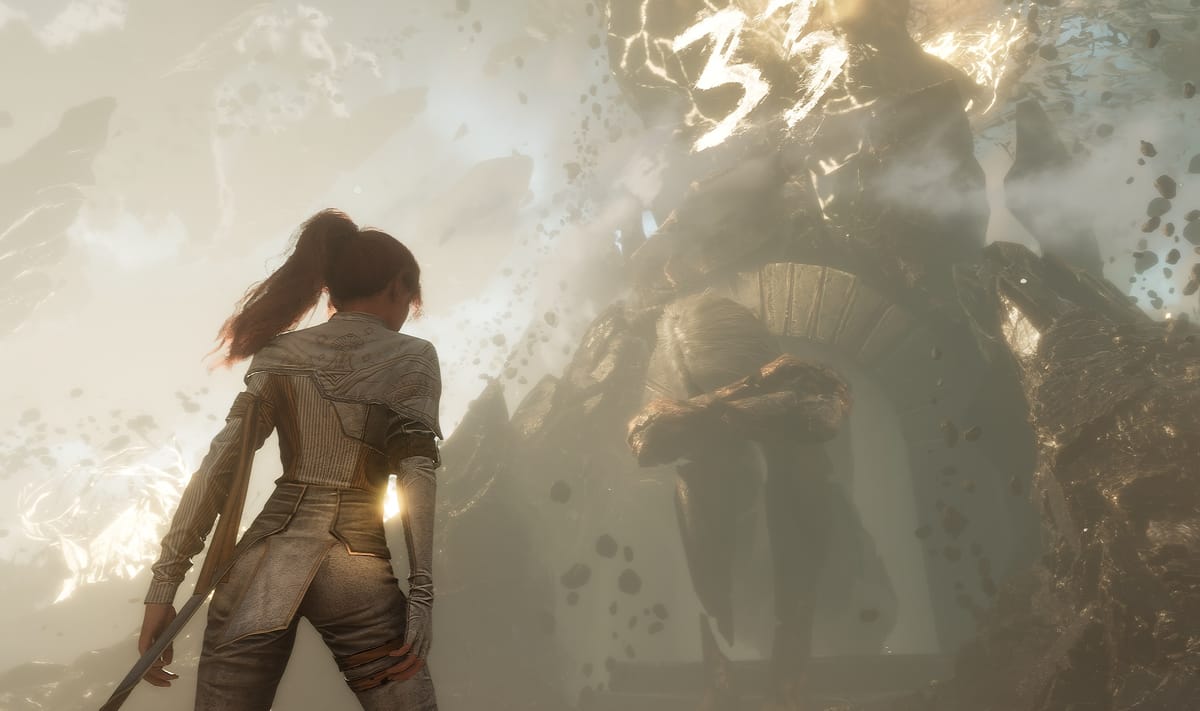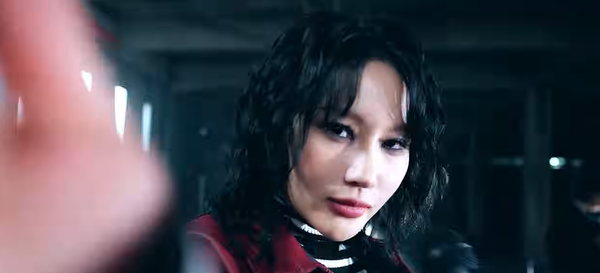Clair Obscur: Expedition 33's Powerful Message Is In Wearing Grief Like A Cloak
Grief is as personal, unique journey, and it's never been as apparent or as poignantly depicted as in Clair Obscur: Expedition 33.

Part of the reason why I play games is for storytelling and characterization. It's probably why I'm drawn to games with strong narratives and a memorable cast, and while I replay many of my favorites happily despite knowing what's coming up next. And it's probably why I'm drawn to RPGs in particular, although there are plenty of games out there that aren't in that genre that possess lots of great story.
A subset of that, however, is playing games that have strong themes, things that resonate with me on an entirely new level. When a game speaks to me and understands me, and when I can identify with its story and characters, I tend to remember those games forever, and place them in my own personal mental Hall of Fame.
My friends wouldn't stop talking to me about Clair Obscur: Expedition 33 for most of the last few months. Since they knew I preferred turn-based JRPG-style combat and games, they thought that this game, created by up-til-now unheard of French development studio Sandfall Interactive, would be a perfect fit for me. With a ton going on for me, I didn't really get to buying this game until it appeared on discount during the Steam Autumn sale, and I was glad I did. For those who don't know what the story setup is about, here's what it is straight from the tin, so to speak:
Once a year, the Paintress awakens to inscribe her cursed number on the monolith. And everyone of that age vanishes, turning to smoke, and fading into nothing.
Each year, the number decreases, erasing more lives. Soon, she will mark “33.” When she does, we will embark on our final mission—to destroy the Paintress and end her deadly cycle for good.
...
Let the world once again watch the sun rise without the shadow of her cursed figure, and may the wind of renewal take you to the ends of the earth.
The best part about this description is that it's accurate but ultimately a tiny bit subversive insofar as themes go. The theme isn't just the courage and determination of a cast of characters engaging in a sci-fi/fantasy post-apocalyptic quest, but of what exactly they've had to deal with in doing so. And the overarching, unifying consequence is in dealing with grief, and with constant loss.
Grief is a complex concept, and that complexity is in the fact that it is very different for everyone that experiences it. In a world like Expedition 33's, it's very much an in-your-face guarantee. Yes, here in the real world we inevitably know we are mortal, but Expedition 33's annual cycle of erasure of the oldest makes it a scheduled event, a known day that is so like clockwork that the Gommage, as it is referred to, is a day of expected mourning tinged with red and white flowers.
This means grief isn't just something the citizens of the city of Lumiére know of - it's something they wear, like a cloak, knowing it is coming and doing what they can to deal with it. The various Expeditions that have come before Expedition 33 are just one aspect of having to deal with that inbound grief, through attempting to end the cycle of known loss year after year. But individually, characters themselves show their own methods of coping - the cerebral Lune, for example, says that she "uses" what comes from grief - anger, pain, etc. - and continues onward with cold logic. Sciel, another character, has settled into a grim, even humorous, acceptance (though not without some darker events that get her there). Protagonist Gustave clings to the remaining shreds of his shrinking loved ones - foster sister and fellow Expedition 33 member Maelle especially - as well as his determination to remove the Paintress from the killing field that has become everyone's lives. This exploration of grief is fascinating and, at times, viciously accurate in the various campfire dialogues and story events.
And when Gustave is unexpectedly and suddenly killed not even one third of the way through the game, that grief comes home to the remaining characters, and to us as players as well - a testament to the fact that grief and death can happen without warning. The expedition starts horribly with a near-total massacre of characters you were just getting to know at the beginning of the game, but the loss of the perceived protagonist just hurts all the more, especially if you're someone who's experienced the loss of a loved one in an unplanned, unprepared way. Perhaps one of the most poignant scenes after this came when newcomer Verso tries to comfort Maelle, only for her to say she's experienced so much loss in her life between her parents and watching people, including Gustave, die around her that she's had enough condolences. Those small moments, where the game picks out the sub-elements of struggling with grief, such as feeling condolences are empty after a while, are why the cloak of grief sits heavily on the shoulders of its cast.
But the game isn't done there. When the big twist at the end of Act II comes along, and reveals that the entirety of the world in which we've experienced this grief is itself not only fictional, but a method of grief escapism, things truly expand with exploring that. For the Paintress to be, in reality, a grieving mother fabricating her lost son and idealized family, through her family's supernatural ability to paint things into being on canvas and experience them, is immense in its revelation of grief and its coping. That the entirety of the Dessendre family is caught up in the various ways in which grief is dealt with makes it all the more significant, especially as it relates to the eventual last battle within the canvas on which Expedition 33's world is painted.
Yet the "zoom out" doesn't make what's happening at the ground level any more significant - in fact it makes the game's ability to make you choose the fate of the world of the game more difficult. Neither choice is the ideal one, but it also speaks to the difficulty of dealing with grief, how to work with loss, and ultimately, how to address it moving forward. There's been a lot of discourse about which ending is the "good" one - continuing the ability to escape at the cost of living a lie or facing a painful truth that has near-permanent implications on life moving forward - but neither is any less of a significant commentary on journeying through grief. Either way, the grief stays with you, and it's how you wear it that determines how you ultimately move forward.




